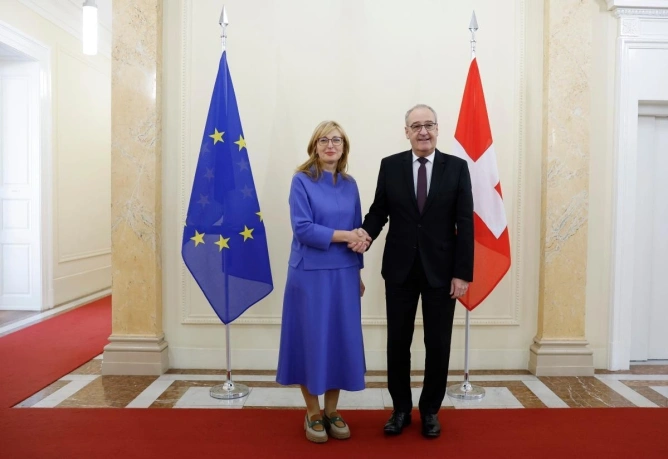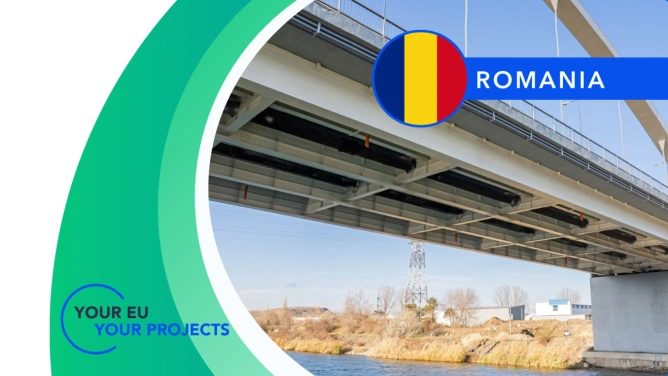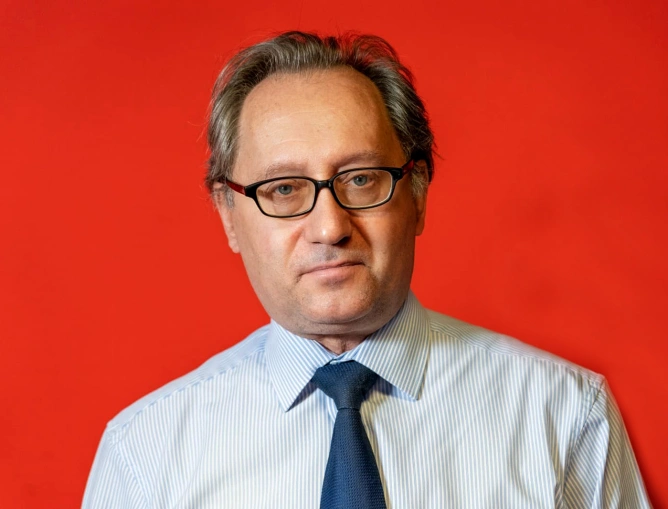
Brussels / Bern, November 10, 2025 — The European Union and the Swiss Confederation have signed the agreement through which Switzerland becomes fully associated with Horizon Europe, Digital Europe and the Euratom Research & Training program, marking its return to the core of European research and innovation policy after a four-year absence.
The agreement, signed in Bern by Ekaterina Zaharieva, the European Commissioner for Startups, Research and Innovation, and Guy Parmelin, Federal Councillor and Minister of Economy, Education and Research, comes into effect retroactively from January 1, 2025.
Through the new agreement, researchers and organizations in Switzerland will again have the same status as those in EU member states, being able to coordinate international research consortia, access funding directly from European programs, and participate in all pillars and instruments of Horizon Europe, Digital Europe, and Euratom. According to the European Commission, this reintegration opens new opportunities for cross-border scientific and industrial collaboration, contributing to accelerating European progress in areas such as the green transition, digital transformation, medical innovation, advanced manufacturing, and energy security.
"Today's signature opens a new chapter in EU-Switzerland relations, deepening our partnership in research, innovation, education, and digital transformation. By joining Horizon Europe and the key programs of the Union, Switzerland and the EU are jointly investing in skills, technology, and science, building a more competitive and connected Europe," said Ekaterina Zaharieva, the European Commissioner for Startups, Research and Innovation.
The agreement also includes a significant expansion of cooperation between the EU and Switzerland in the fields of science, energy, and education. Starting in 2026, Switzerland will become a member of the Fusion for Energy organization, which manages the European contribution to the international nuclear fusion project ITER. Looking ahead, Bern will be invited to join other major Union programs, such as Erasmus+, from 2027, for academic mobility, and EU4Health, after the entry into force of the Health Agreement, for collaboration in public health. These new partnerships will allow Switzerland to fully participate in strategic European initiatives in science, education, and health, strengthening its position in the European Research and Innovation Area (ERA).
Negotiations took place between March and December 2024, forming part of a broader package of bilateral agreements aimed at modernizing economic and institutional relations between the European Union and the Swiss Confederation. After signing the other components of the package, both parties will proceed to the complete ratification of this new cooperation framework.
Switzerland's integration represents a strategic step for Europe's global competitiveness in research, at a time when technological competition with the USA and China is intensifying. The Commission believes that this association will strengthen Europe's role as a global hub for high-impact scientific and technological development, providing common research resources, infrastructure, and expertise.
After the blocking of the EU-Switzerland institutional framework agreement in 2021, Switzerland's participation in the Horizon Europe program was suspended, with the country being treated as a "non-associated third country." During this period, Bern continued to fund from the national budget projects won by Swiss researchers, but they no longer had direct access to European funds and could not coordinate international consortia. The agreement signed on November 10, 2025 restores Switzerland's full association status, allowing it to participate again in European research and innovation programs under the same conditions as EU member states.



